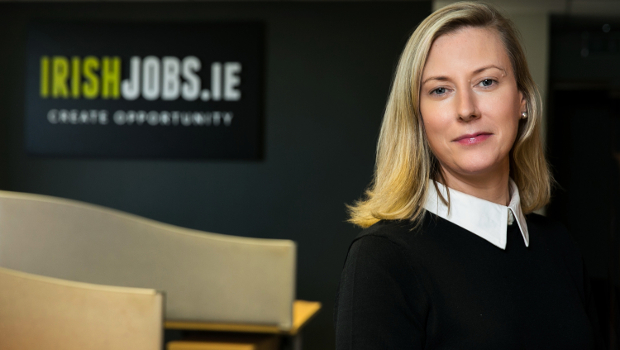Bitcoin is the most famous and widely traded ‘cryptocurrency’, a virtual currency that facilitates direct, instant and practically anonymous transactions between payer and payee. Inspired by the crash of 2008, Bitcoin cuts out the middlemen: there are no intermediary banks, clearing houses, regulators, or financial services companies.
Evangelists herald Bitcoin as a financial revolution, sceptics call it a bubble. Regardless of their advice, investors, amateur and professional, are scrambling to be a part of it.
Bitcoin’s extreme volatility makes predicting its longevity difficult, but it’s the technology that powers the currency, blockchain, that’s capturing the imagination of businesses across the world.
So, what is it? Put simply, blockchain is a distributed record of transactions – a ‘digital ledger’ – that is stored and maintained by everyone on a computer network, not just a single private custodian, like a bank, or a funnel of closed-off thirdparties. Every transaction must be processed and verified as legitimate by a majority of the blockchain network. Once it is, a record of the transaction is permanently and unalterably locked into the blockchain, visible to everyone.
Blockchain makes interactions between payers and payees, or customers and suppliers, more transparent, trustworthy, and less likely to be fraudulent. They’re more secure, too: a blockchain is distributed between computers, so a hacker has no single point of entry or vulnerability to exploit.
The usefulness of blockchain technology isn’t just limited to money. Industries as diverse as law, recruitment, and healthcare could see their business costs reduced by using blockchain to speed up administrative processes, improve customer relations, and decrease spend on third-party fees.
An increasing number of Irish companies are applying blockchain technology to their business operations, and many others are exploring its possibilities. Already, Belfast blockchain company Arc-net has used the technology to improve food safety and supply chain logistics. Other Irish start-ups are using blockchain to simplify foreign currency exchange and reimburse passengers whose flights are delayed or cancelled with vouchers.
41% growth in blockchain-related roles
In 2017, IrishJobs.ie witnessed a 41 percent rise in blockchain-related jobs compared to last year. Roles are opening up in software development, business analysis, project management, data science, accounting, and management consulting. We fully expect this number to increase, and for blockchain jobs to further diversify, in 2018.
Dubai, London, Singapore and Zug, Switzerland (more commonly known as the ‘Crypto Valley’) have all looked to position themselves as leading innovation hubs for blockchain technology. Zug is already home to major industry players including Ethereum, ShapeShift, Xapo, Tezos, Melonport, and Monetas. The local government has embraced the technology and is making it possible for citizens to pay for services in bitcoin. It also recently announced a ‘digital ID’ initiative running on the Ethereum blockchain.
Deloitte was one of the first major corporates to identify the potential of blockchain. It currently employs a team of 800 dedicated blockchain professionals across its US operations.
Interestingly, approximately 75 percent of all blockchain jobs result from crosstraining existing employees – an increasingly popular trend, according to Eric Piscini, a Deloitte principal who oversees much of the firm’s blockchain work.
This is good news for Irish industry. We have a ready-made highly educated and dynamic workforce, and a proven track record of adapting to the needs of new industries. Our growing reputation as a fintech hub is the latest example of this. Furthermore, Ireland offers a thriving R&D ecosystem coupled with a robust intellectual property regime.
Ireland to become a European blockchain leader Ireland is currently ranked as the 8th most innovative EU country, and the Government’s recent €8.2 billion R&D investment as part of its strategy for science, technology and innovation has the potential to strengthen our position further.
Earlier this year, Deloitte chose Dublin as the base for its EMEA Blockchain Lab. In another welcome development, the Blockchain Association of Ireland called for the creation of a ‘Crypto Coast’, a regional hub for cryptocurrency and blockchain companies stretching from Dublin to Wexford. Here, there is potential for new revenue generation and job creation.
Ireland is well-positioned to become a European blockchain leader, but for this to happen, the technology must be embraced by the Government, the Central Bank, and wider industry. This doesn’t mean they need all the answers to the various regulatory headaches presented by blockchain, but they should demonstrate a commitment to creating the necessary conditions for blockchain companies to thrive.
In short, while Bitcoin continues to polarise opinion, and could yet crash and burn, blockchain is here to stay. Its applications are practically limitless, and Ireland, with its existing tech credentials, is in a strong position to capitalise on a genuinely disruptive innovation. To maximise this potential, in 2018, industry and Government will need to work in close collaboration to build a clear policy agenda and vision for blockchain in Ireland, and ensure that businesses have access to the right talent.
Orla Moran is the general manager of IrishJobs.ie
For the latest jobs in IT check out techcentral.ie/jobs








Subscribers 0
Fans 0
Followers 0
Followers